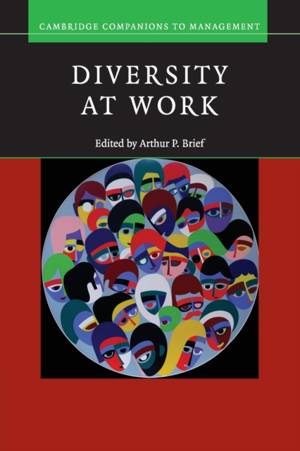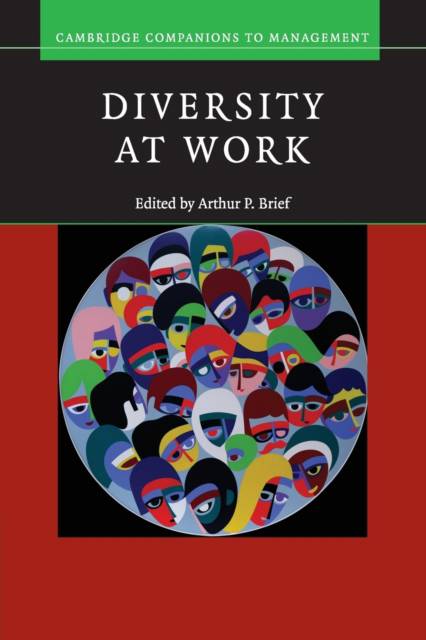
Door een staking bij bpost kan je online bestelling op dit moment iets langer onderweg zijn dan voorzien. Dringend iets nodig? Onze winkels ontvangen jou met open armen!
- Afhalen na 1 uur in een winkel met voorraad
- Gratis thuislevering in België vanaf € 30
- Ruim aanbod met 7 miljoen producten
Door een staking bij bpost kan je online bestelling op dit moment iets langer onderweg zijn dan voorzien. Dringend iets nodig? Onze winkels ontvangen jou met open armen!
- Afhalen na 1 uur in een winkel met voorraad
- Gratis thuislevering in België vanaf € 30
- Ruim aanbod met 7 miljoen producten
Zoeken
Omschrijving
What effects do racism, sexism and other forms of discrimination have on the functioning of organizations? Is there a way of managing organizations such that we can benefit both the members of traditionally disadvantaged groups and the organizations in which they work? Discrimination on the basis of race or gender, whether implicit or explicit, is still commonplace in many organizations. Organizational scholars have long been aware that diversity leads to dysfunctional individual, group, and organizational outcomes. What is not well understood is precisely when and why such negative outcomes occur. In Diversity at Work, leading scholars in psychology, sociology, and management address these issues by presenting innovative theoretical ways of thinking about diversity in organizations. With each contribution challenging existing approaches to the study of organizational diversity, the book sets a demanding agenda for those seeking to create equality in the workplace.
Specificaties
Betrokkenen
- Uitgeverij:
Inhoud
- Aantal bladzijden:
- 388
- Taal:
- Engels
- Reeks:
Eigenschappen
- Productcode (EAN):
- 9780521677639
- Verschijningsdatum:
- 2/06/2008
- Uitvoering:
- Paperback
- Formaat:
- Trade paperback (VS)
- Afmetingen:
- 154 mm x 225 mm
- Gewicht:
- 630 g

Alleen bij Standaard Boekhandel
+ 121 punten op je klantenkaart van Standaard Boekhandel
Beoordelingen
We publiceren alleen reviews die voldoen aan de voorwaarden voor reviews. Bekijk onze voorwaarden voor reviews.










